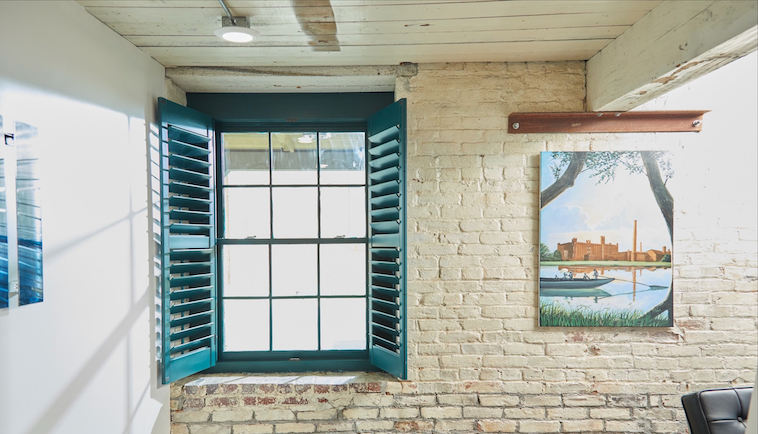Builders overcome the challenge of restoring historic buildings by replacing deteriorated wood windows with high-tech wood windows that don’t rot and are environmentally friendly.
Restoring historic buildings can be a challenge, particularly when it comes to replacing deteriorated wood windows. Dry rot is the main reason why architects and builders need to restore old windows in historic buildings, meaning that new windows need to be able to stand the test of time.
Today, builders are finding innovative ways to effectively replace historic windows with high-tech wood windows, which have a specific environmentally friendly treatment process to prevent against wood rot, bending, or insect infestation.
This is the first in a four-part blog series that revolves around the design flexibility, aesthetic, and durability of wood windows.
High-tech wood treatment
In the 1970s, the US Department of Environmental Quality outlawed pentachlorophenol-based (penta-based) wood-dip treatments, a common perpetrator of volatile organic compounds (VOCs) that caused harmful health and environmental risks. Instead, manufacturers began to use a more environmentally friendly product called Woodlife F. But while Woodlife F was great for the planet, dry rot would still form if it were exposed to too much moisture.
Now builders can prevent dry rot with a new high-tech wood treatment method that is pressure treated, and the process even eliminates VOCs from being emitted during the treatment. All JELD-WEN windows are made with AuraLast pine, an ideal, environmentally friendly wood option that releases 96% less VOCs than traditional solvent-based methods—all while maintaining its shape, color, and beauty for several years.
The pressure-treatment process
The pressure-treatment process supersaturates the wood components with chemicals used in water repellent, insecticide, and fungicide. The water repellent is especially essential to prevent moisture from infiltrating the wood parts, keeping them stable and resistant to warping and bowing. Once the wood parts are saturated, they are kiln dried.
To test the durability of this wood treatment, manufacturers send their wood to a testing site in Hilo, Hawaii, which has one of the most severe climates on earth. In Hilo, wood is incredibly susceptible to dry rot and termites, and with more than 300 inches of rain a year, the temperature is almost always above 60 degrees with high humidity — the perfect conditions for dry rot.
One of the testing strategies is to compare two small huts — one with the pressure-treated wood and one without — and view the results after three months. If the pressure-treated hut does not deteriorate due to the harsh climate conditions, the wood passes the test.

Built in 1911, Lincoln Hall is Portland State University’s performing arts center.
Case study: Lincoln Hall, Portland State University
Portland State University wanted to install new windows in Lincoln Hall, which had original double-hung frames. But the interior of the building was priceless, made of mahogany casework and six-quarters of an inch-thick trim. Builders could absolutely not damage or tear off the interior woodwork, which was attached to the window frame on the sides.
The technical challenge concerned the jamb leg that supported the weight of the window. The sill was sloped, and because of the jamb leg, the sill of the new window couldn’t directly sit on the sill of the old window.
Builders finally came up with a solution for this dilemma. They decided to rout out the original jamb so the new window could drop into the old sill, and the new sill could sit directly on top. This actually gave two inches between the window and the historic concrete sill, and they were able to finally install new JELD-WEN Custom Wood windows.
Wood windows at JELD-WEN
JELD-WEN’s wood window collection is elegantly designed to last for years and can fit in just about anywhere. All JELD-WEN window lines are made with AuraLast wood pine, ensuring that they will last for years and stay protected from rot, termites, and water damage.
- Siteline™ Wood windows accentuate each room with their pristine craftsmanship, quality, and versatility. Each window comes in a variety of styles, colors, and finishes that can add a touch of professional elegance to any home.
- Custom Wood windows are handcrafted to last, balancing artistry and reliability. These one-of-a-kind windows are personalized for every home project, giving homeowners a place they can truly call their own.



